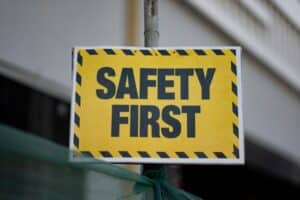
The Occupational Safety and Health Administration (OSHA) plays a critical role in ensuring the safety and health of America’s workforce. OSHA covers most private sector employers and workers in all 50 states, the District of Columbia, and other U.S. jurisdictions either directly through Federal OSHA or through an OSHA-approved state plan. As a small business owner, you may find OSHA regulations and guidelines to be complex and at times overwhelming. However, understanding your rights and responsibilities under OSHA is crucial for maintaining a safe workplace and avoiding legal complications.
Employer Rights
As an employer, you have both rights and responsibilities under the law. Your rights include the following.
- Right to Information: You have the right to be informed about OSHA standards that apply to your industry. OSHA provides various resources, including online materials and consultation services, to help you understand your obligations.
- Right to Contest: If you disagree with the findings of an OSHA inspection, you have the right to contest the citation, penalties, or abatement period. The process is formal and may require legal representation.
- Right to Participate in Inspections: During an OSHA inspection, you or a representative have the right to accompany the OSHA inspector for the duration of the inspection tour. You also have the right to talk privately with the OSHA inspector before and after the inspection.
- Right to Privacy: While OSHA has the authority to conduct workplace inspections, they must respect reasonable expectations of privacy. Any trade secrets observed during an inspection are kept confidential.
Employer Responsibilities
Employers also have certain responsibilities under the law, which include the following.
- Provide a Safe and Healthful Workplace: You are required to provide a work environment free from recognized hazards that could cause or are likely to cause death or serious physical harm to employees.
- Comply with OSHA Standards: You must examine workplace conditions to make sure they comply with all applicable OSHA safety and health standards, which may include requirements for personal protective equipment, noise exposure, and hazardous materials handling.
- Report and Record-Keeping: Employers are required to report any workplace incident resulting in a fatality or the hospitalization of three or more employees within 8 hours. You must also maintain records of work-related injuries and illnesses.
- Train Employees: You are responsible for establishing and updating operating procedures and communicate them to employees. You are responsible for providing safety training in a language and vocabulary workers can understand. This includes training in hazardous materials, emergency procedures, and the use of protective equipment.
- Display OSHA Poster: You must display the OSHA “Job Safety and Health: It’s the Law” poster in a conspicuous location where employees can see it.
- Anti-Retaliation Protections: You cannot retaliate against employees who exercise their rights under the OSHA Act, including the right to report injuries or to file a complaint.
OSHA Consultation Services
Small business owners can take advantage of OSHA’s On-Site Consultation Program. This free service offers confidential advice on complying with OSHA standards and improving your workplace safety and health.
Conclusion
Understanding your rights and responsibilities under OSHA is not just a legal requirement but also a moral obligation to your employees. By adhering to OSHA guidelines, you not only protect your workforce but also contribute to the overall well-being of the community. For more information, visit the OSHA website or consult with professionals experienced in occupational safety and health regulations.
By taking the time to understand and implement OSHA standards, you invest in the long-term success and reputation of your business.
Please note that this article is only intended to provide some general educational information. For your particular legal questions, be sure and consult with an attorney.
Leah Schoen
(805) 306-1100 ext. 126
leah@thegreenlawgroup.com
